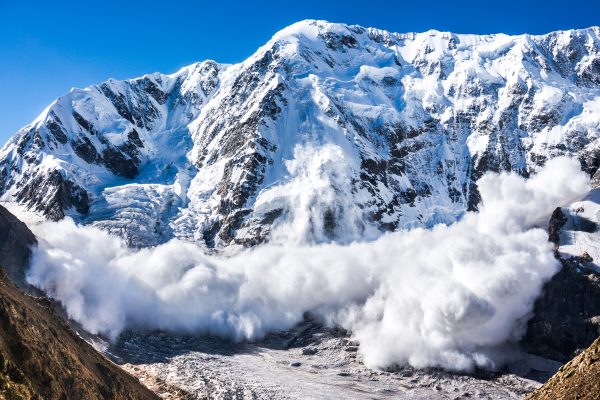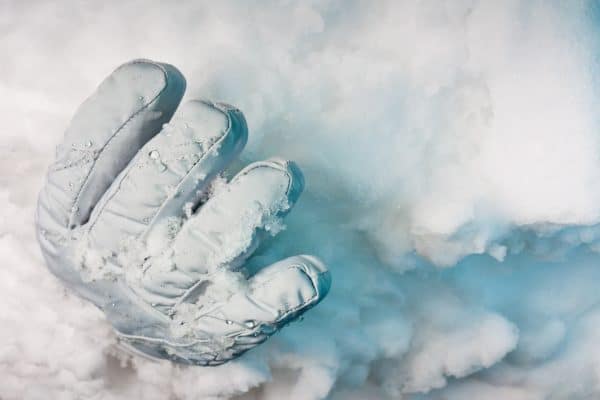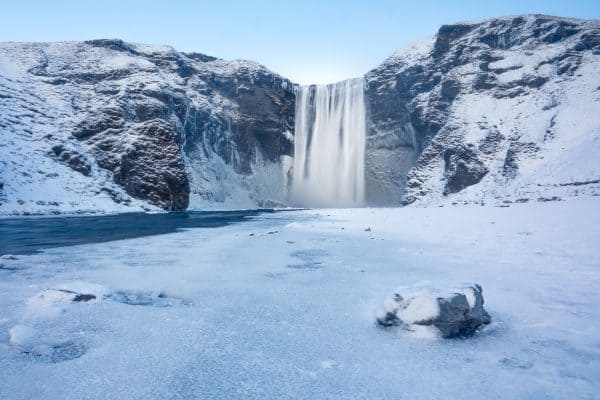Bleach is a household constant—from cleaning clothes to disinfecting houses to many things in between. No matter how well you store it, it will naturally degrade over time, even for unopened bottles. One factor that can accelerate its decomposition is temperature. Extreme heat is known to easily break down the active ingredient. But how about its opposite—does freezing affect bleach? We did our research and the succeeding paragraphs detail what we found out.
Similar to high temperatures, low temperatures can also degrade bleach faster. Temperatures starting at 19⁰ F or lower can freeze most home bleach. Bleach containing hydrogen peroxide will tend to freeze faster. Prolonged exposure to windchills may also produce the same end effect. Therefore, you need to ensure that bleach is stored in rooms with maintained temperatures, away from the cold or direct sunlight, and kept in its original storage containers.
In this post, we'll look closer at the different factors that are known to affect how bleach freezes. So be sure to keep reading.
NOTE: WE MAY GET A COMMISSION IF YOU DECIDE TO MAKE A PURCHASE THROUGH THESE LINKS. THERE'S ADDITIONAL NO COST TO YOU. CHECK THE BOTTOM OF THE PAGE FOR MORE INFORMATION.
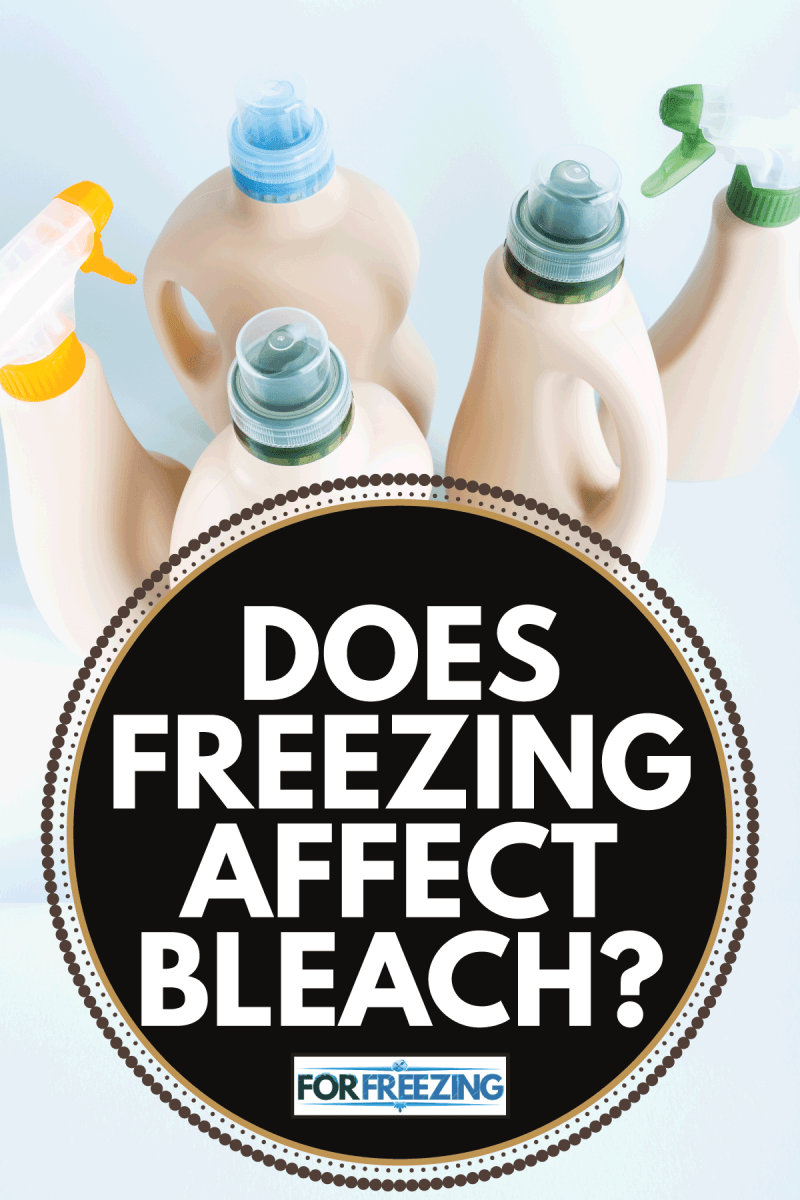
What factors influence bleach to freeze?
There are mainly three determinants:
Concentration
Basically, the less concentrated the solution, the more likely it is to freeze in higher temperatures. This is since more water is present and between bleach and water, water will have a freeze faster. Commercially available bleach solutions can either contain 5.25% (common household bleach 'regular strength') or 6% ('ultra strength') sodium hypochlorite.
Types of bleach
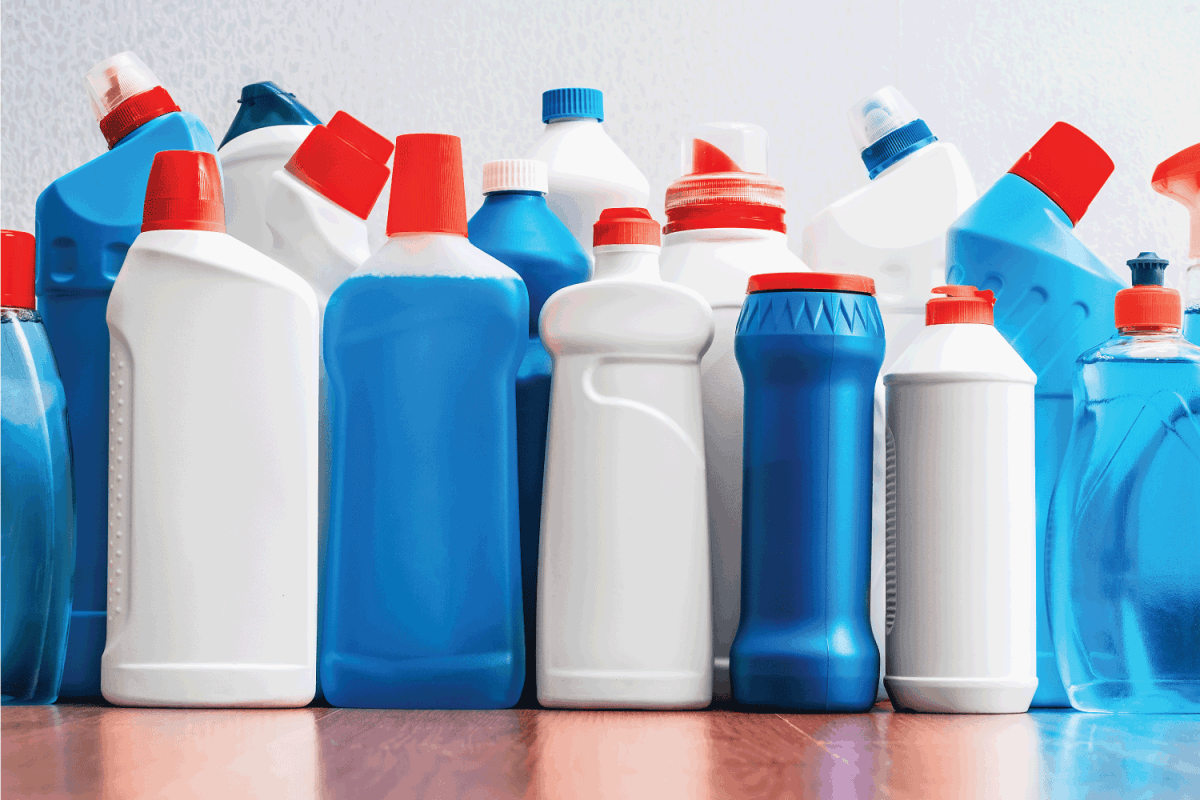
There are basically two types of bleach: chlorine bleach and oxygen bleach.
- Chlorine bleach – It is basically sodium hypochlorite diluted in water. The most common bleach that is used to whiten and clean clothes belong to this category. They act by breaking the chromophore bonds, which are responsible for reflecting certain light waves. There is a specific chromophore for each wave of light giving us the ability to see colors. Once altered, we stop seeing the colors and end up seeing only white since the light wave is no longer being singled out.
- Oxygen bleach – Sometimes referred to as color-safe bleach, it is also dubbed to be the more environment-friendly type of bleach. The active ingredient is hydrogen peroxide which causes bleaching by releasing its extra oxygen ion. This release of oxygen into the solution leads to oxidation. It is usually used in the bleaching of silk, wool, feather, or ivory.
Wind chill
We all know what wind chill is. It may not be that cold, but the presence of wind can make the temperature lower. And constant wind chill can lead to your bleach freezing, especially in an area with a minimal shield from the cold.
What is the freezing point for bleach?
Given all the factors just enumerated, the freezing point of bleach may vary. The more concentrated the bleach, the more difficult it is to freeze. But the bleach commonly used at home will start to solidify at 17⁰F as it contains 5.25% sodium hypochlorite.
Chlorine in its purest form will freeze at 149.51⁰F while hydrogen peroxide in its purest form tends to solidify at 31.3 ⁰F .
How do you keep bleach from freezing?
You should store your bleach in rooms where the temperature is maintained as closest to normal room temperature. Keep it away from areas that may be exposed to wind or wind chills. So, a room in your house rather than the garage or poolside storage is the preferred area to store your bleach is preferred.
Other measures to keep bleach safe is to store it in opaque containers, away from heat and light.
Will bleach melt ice?
From a chemistry standpoint, bleach can be used to de-ice as it has a lower freezing point compared to water. However, from an environmental perspective, there may be some challenges in using bleach as a constant de-icing compound, albeit it being a cheap alternative.
Bleach is known as the most common disinfectant. It can readily kill the microorganisms present, both good and bad. It can also change the pH of the soil where they thrive. Also, bleach can form compounds as it interacts with the materials present which can contribute to changing the overall environment of the soil. And over-long exposure can affect the immune, circulatory, and respiratory systems of humans and animals present.
Chlorine is more reactive to the surrounding minerals and can form dangerous toxins and persistent organic pollutants while hydrogen peroxide is perceived to be less toxic because it is naturally occurring and is produced by plant and animal cells. But again, if present in concentrations nearing 35%, then there is a concern as it poses serious effects to the environment.
Does disinfectant spray freeze?
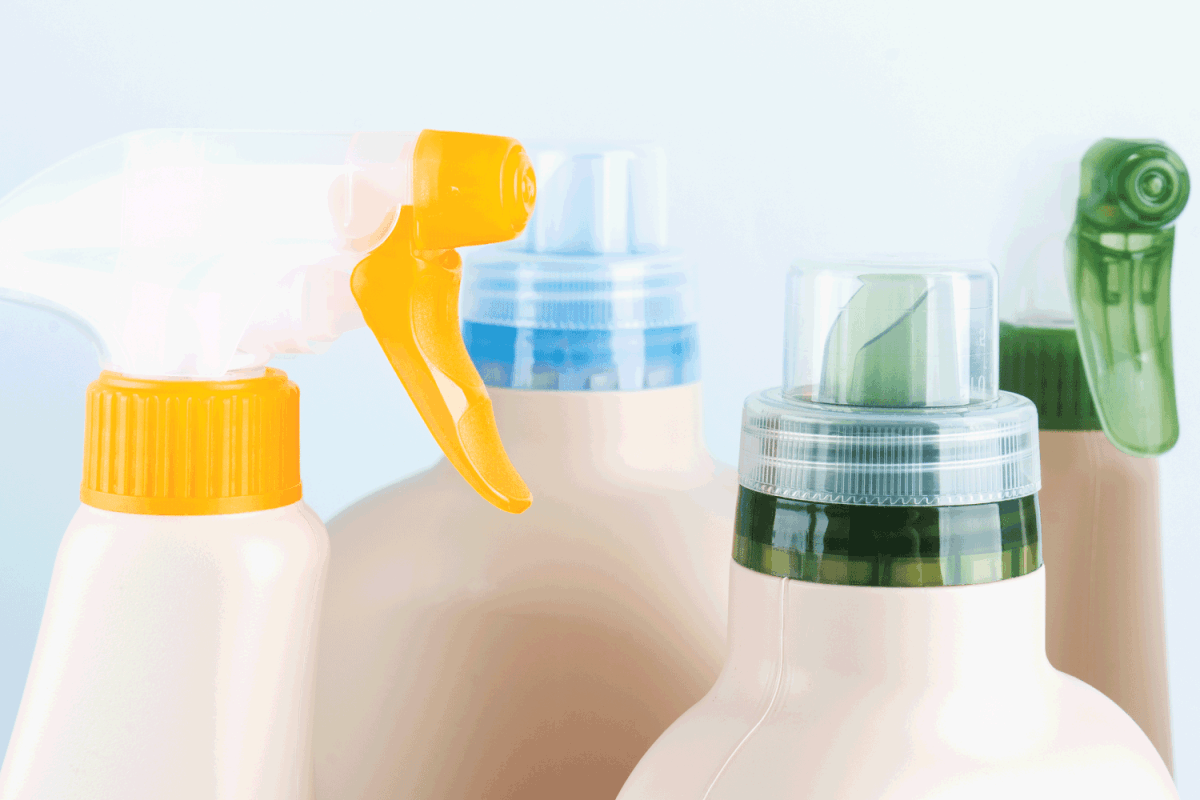
Most disinfectant sprays will freeze at 32⁰ F since most are in an aqueous state. It may be challenging to disinfect tabletops or other surfaces on any cold winter day outside. The disinfectant spray may not freeze when done at room temperature but may pose a challenge if the temperature is below its freezing point.
Disinfectant sprays are agents used to kill microorganisms and clean the environment. They usually are versatile as the areas that they can clean range from our houses to our hands. The common surface sprays that we use to clean tabletops, kitchen counters, and even toilet seats form part of the whole spectrum of disinfectant sprays. The key to choosing which disinfectant to consider depends on the effectiveness (chemical content), efficiency (how fast they can kill the microorganisms based on their claim), and convenience (manner of application).
Common disinfectant sprays may come under the following brand names: Lysol, Clorox, Febreeze, Oust, Mr. Clean, and Pine-Sol.
What happens if Lysol spray freezes?
Lysol can lay claim that it has survived three epidemics: cholera, Spanish flu, and Covid-19. Depending on the type of Lysol spray, it may contain any one of the following: ethanol/SD alcohol, isopropyl alcohol, p-Chloro-o-benzyl phenol, o-Phenylphenol, potassium hydroxide, alkyl, alkyl (C12-C18) dimethyl benzyl ammonium chloride, lactic acid, and hydrogen peroxide.
The different components of Lysol may behave differently when frozen and its inert chemical characteristics affect the freezing point of Lysol. However, generally, when exposed to colder temperatures, the liquid inside the aerosol cans can freeze but tend to be still effective when thawed at room temperature. Prolonged exposure can lead you to an exploded can. The fluid inside will expand when frozen which in turn can exert further pressure on the compressed air present.
End Notes
To maximize the lifespan of our bleach, we need to provide good storage. Make sure that they are stored in cabinets inside our homes especially during winter as exposure to extreme cold can affect the active ingredient. Remember that even if they are unopened, the chemical ingredients present will also degrade over time.
A bottle of bleach may remain in its prime for up to six months and slowly degrade after that. Thus, only buy stocks that you can finish within this time frame depending on your amount and rate of use. Replenish only when your stock is about to be consumed.

